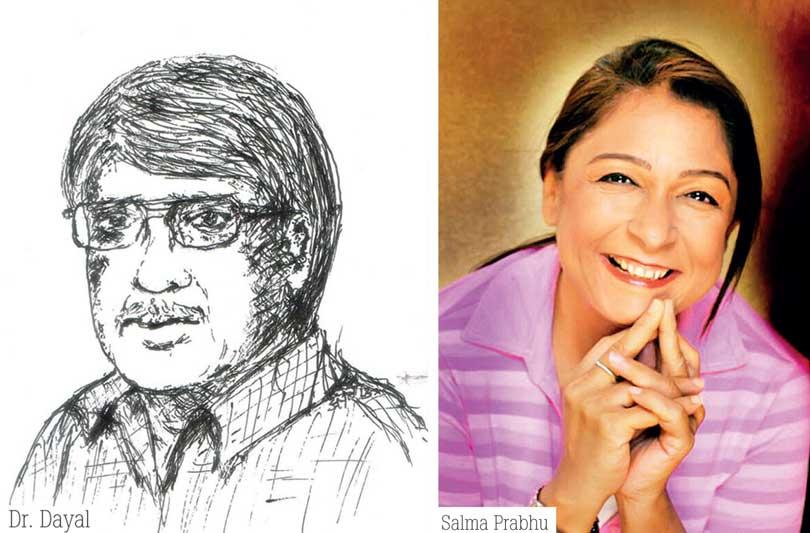Reply To:
Name - Reply Comment

 In the intricate dance of life, our emotions choreograph our every move, moulding perceptions and dictating decisions. Yet, occasionally, they surge uncontrollably, like a torrential downpour, inundating our senses, obscuring clarity, and challenging our equilibrium. This tidal wave, termed 'emotional flooding', carries a deep resonance on our mental canvas.
In the intricate dance of life, our emotions choreograph our every move, moulding perceptions and dictating decisions. Yet, occasionally, they surge uncontrollably, like a torrential downpour, inundating our senses, obscuring clarity, and challenging our equilibrium. This tidal wave, termed 'emotional flooding', carries a deep resonance on our mental canvas.
Author, Richard Davidson, who is a professor of psychology and psychiatry, touches on this subject in the book titled "The Emotional Life of the Brain", co-authored with Sharon Begley. It’s a comprehensive work, which presents decades of research and leaves readers with a profound understanding of how emotions impact our minds and thereby influence our daily lives. Davidson identifies emotional styles, highlighting that emotions are not fixed traits but rather patterns that can be modified and transformed through intentional practice and effort.
 This understanding lays the groundwork for a deeper exploration into emotional experiences, as elucidated by psychiatrist Dr Shefali Batra on my podcast. Dr Batra explains that “when someone experiences emotional flooding, they feel a sea, or rather, they feel a tsunami of emotions”, an overwhelming feeling, which is referred to as emotional flooding. Dr Batra says that the outward expression of this overwhelming experience is often seen as a meltdown, characterised by screaming or hysterical reactions.
This understanding lays the groundwork for a deeper exploration into emotional experiences, as elucidated by psychiatrist Dr Shefali Batra on my podcast. Dr Batra explains that “when someone experiences emotional flooding, they feel a sea, or rather, they feel a tsunami of emotions”, an overwhelming feeling, which is referred to as emotional flooding. Dr Batra says that the outward expression of this overwhelming experience is often seen as a meltdown, characterised by screaming or hysterical reactions.
She also shares valuable insights on emotional flooding in my podcast, providing practical tools and techniques to handle this overwhelming emotional state. Additionally, she highlights the distinction between healthy and unhealthy emotions, offerings insights into how to embrace and process overwhelming emotions in a positive way.
Understand your feelings
Dr Batra sees meditation, particularly Vipassana, as an effective way to manage overwhelming emotions. On my podcast, she explained that during meditation, the processing unit of our emotional centre encounters surprising memories that differ from our everyday worries about work, family, and relationships. She believes that by connecting inward and blocking out external noise, meditation offers a valuable opportunity for self-reflection.
Psychiatrist Dr Dayal Mirchandani adds, “Healthy emotions can be achieved through various factors such as meditation, laughter clubs, pleasant walks, and spending time with friends. Engaging in mindful activities and distancing oneself from a stressful environment can significantly contribute to a person's overall well-being and help cultivate positive thoughts.”
Dr Mirchandani suggests that, “The effectiveness of these activities may vary depending on the nature of the emotion experienced. While a particular topic might evoke negative emotions in one person, it could have a positive impact on another individual. Therefore, understanding one's own emotional triggers and preferences becomes crucial in pursuing activities that promote emotional health and personal growth.”
To this, clinical psychologist, career counsellor and author Dr Salma Prabhu adds that “Emotional Flooding saps away the individual’s capacity to deal with day-to-day affairs and also could leave a scar.

However, if one feels a flood of emotions and takes quick actions like seeking help from a counsellor or psychiatrist in case of severe physical and mental trauma then it can be nipped in the bud and the individual also learns to deal with the situation and with her or his emotions healthily.”
What brings the dam down
Indeed, past traumas, including childhood trauma, can have a profound impact on our emotional well-being. It's important to understand that such experiences can lie at the root of one’s tendency to get overwhelmed by emotions. In certain cases, this flood of emotions can even contribute to life-threatening events such as blood pressure, heart attack, throbbing headache, etc.
 Dr Prabhu states that “If childhood trauma isn't addressed, it can repeatedly resurface, leading to intense emotional responses, especially when faced with existing or new triggers in one's environment. For instance, if there were experiences of unaddressed abuse – whether physical or mental – during childhood, even subtle reminders while interacting with others, such as friends or a spouse, may trigger emotional flooding, leading to manifestations like panic, depression, fear, phobias, rage, and more.”
Dr Prabhu states that “If childhood trauma isn't addressed, it can repeatedly resurface, leading to intense emotional responses, especially when faced with existing or new triggers in one's environment. For instance, if there were experiences of unaddressed abuse – whether physical or mental – during childhood, even subtle reminders while interacting with others, such as friends or a spouse, may trigger emotional flooding, leading to manifestations like panic, depression, fear, phobias, rage, and more.”
The road to healing
Both Dr. Batra and Dr. Prabhu advocate breathwork as a powerful tool to control emotional flooding. Consistent practice of breathwork can lead to positive outcomes. Dr Prabhu also recommends incorporating exercises like progressive muscular relaxation – this technique involves tensing and relaxing different muscle groups in the body to release tension and achieve a state of relaxation – and guided relaxation (where you follow the instructions of an expert) to cultivate a calmer mind.
The good news is that by recognising and addressing triggers and by embracing healing techniques, individuals can regain control over their emotional responses. To know more, listen to my podcast.
Listen to the full episode via Daily Mirror Online (Website, Facebook, YouTube, Instagram, Twitter or Threads) or by scanning the QR Code above.
